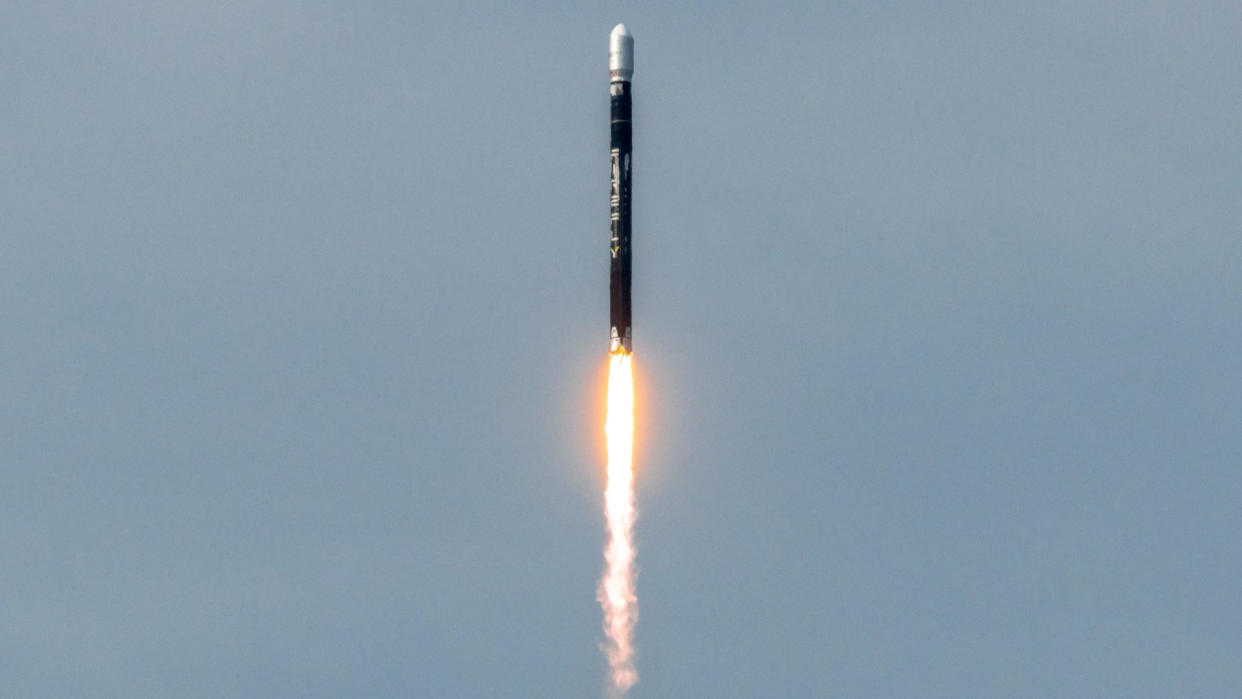Watch Firefly Aerospace launch 8 cubesats to orbit tonight

Update for 2 a.m. EDT on July 2: Firefly scrubbed its planned launch today (July 2) due to an issue with ground support equipment. The next possible liftoff opportunity comes at 12:03 a.m. EDT (0403 GMT) on July 3.
Firefly Aerospace's Alpha rocket will fly for the fifth time ever early Tuesday morning (July 2), and you can watch the action live.
The mission, which Firefly calls "Noise of Summer," is scheduled to launch from California's Vandenberg Space Force Base at 12:03 a.m. EDT (0403 GMT; 9:03 p.m. on July 1 local California time).
Firefly will host a launch webcast with NASASpaceflight.com, beginning 30 minutes before liftoff. Space.com will carry it here and on our home page, courtesy of Firefly and NASASpaceflight.
"Noise of Summer" will send eight cubesats to low Earth orbit atop the 95-foot-tall (29-meter-tall) Alpha. The little spacecraft were selected via NASA's Cubesat Launch Initiative, which aims to help pave a path to space for satellites developed at U.S. colleges, universities and nonprofit organizations.
The eight cubesats going up on "Noise of Summer" were developed by teams at the University of Arizona, the University of Kansas, the University of Maine, the University of Washington, a nonprofit called Teachers in Space, and two NASA facilities — Johnson Space Center in Houston and Ames Research Center in Silicon Valley.
"Noise of Summer" is also designed to demonstrate Firefly's ability to respond quickly to a launch directive.
The company will conduct the mission "as another responsive space operation, which includes transporting the payload fairing to the launch pad and mating it to Firefly's Alpha rocket within hours of the scheduled liftoff, compared to weeks in a typical operation," Firefly wrote in a mission description.
Firefly is practiced in such expedited activity. In September 2023, for example, the company launched the "Victus Nox" mission for the U.S. Space Force just 27 hours after receiving the official order — the fastest such turnaround for any national security mission, according to the company.
RELATED STORIES:
— Firefly Aerospace's Alpha rocket reaches orbit for 1st time
— New record! Firefly Aerospace launches Space Force mission 27 hours after receiving order
— Watch Firefly Aerospace use a rocket engine to light birthday candles
Alpha debuted in September 2021, on a test flight that failed shortly after liftoff. The rocket's second mission, in October 2022, was a partial success; it delivered seven satellites to orbit but apparently deployed them too low.
Alpha aced its third mission, the aforementioned "Victus Nox." Flight number four, which launched on Dec. 22 of last year, was more of a mixed bag. The rocket delivered its payload, an electronically steerable antenna developed by aerospace giant Lockheed Martin, to low Earth orbit but did not achieve the target orbit.
Still, Lockheed Martin was able to "successfully complete their primary mission objectives, including rapid commissioning of the satellite following insertion," Firefly wrote in an update about the mission in February.

